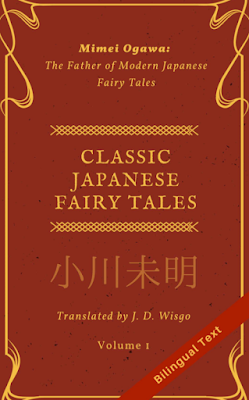"The Bear and the Nightingale" (Winternight Trilology #1) by Katherine Arden (published 2017)
"He knew what evil lay upon this land. It was in the sun-symbols on the nurse's apron, in that stupid woman's terror, in the fey, feral eyes of Pyotr's elder daughter. The place was infested with demons: the chyerti of the old religion. These foolish, wild people worshipped God by day and the old gods in secret; they tried to walk both paths at once and made themselves base in the sight of the Father. No wonder evil had to come to work its mischief." (p. 113)
This passage, found one third a way into Katherine Arden's The Bear and the Nightingale (2017), tells of Konstantin, a monk from Moscow, visiting a small village on the outskirts of the kingdom. Konstantin believes he has a mission, a "duty", to save the village people from pagan beliefs and folkloric tradition, but, as the story goes, the collision of God and duty alongside enchantment and magic just make the sum of all parts a more potent whole. Though this story is set in Russia at the time of feudalism, quite a very long time ago, does the shape of this tale seem so different than those from other countries around the world, back then, and even today? The clash of monotheism and theism, deism and polytheism, iconoclasm and spirituality is a tale worth repeating, indeed.
At the center of it all is Vasya, a young Russian maiden whose lineage links to the fey and its realm. Though her brothers and sister do not have the same precise connection to that world, they all live happily in their village together along with their father, taking care of and loving one another, teasing and laughing and working together as best they can, all the while knowing that Vasya is touched by something they may not understand or grasp fully but accept nonetheless. There is also Dunya, a grandmotherly, sweet, and kind caretaker of them all, who pays respect to the old ways, such as leaving a bit of food and drink for otherworldly creatures. Vasya has the rare ability to see these creatures and speak to them, learning their ways and habits without judgement or fear. Soon she finds out that she is not the only one who can see, that her new stepmother, Anna, can see as well. However, Anna does not see in the same way Vasya does. She is fearful, critical, full of hatred towards these unknowns, and deems them demonic beings of hell. Ultimately, she aligns herself with Konstantin and encourages the rejection of all things fey. Part of Vasya's narrative is her having the courage to remain faithful to the other side, only realizing later that by doing so she ensures the survival of the entire community.
"But Vasya was frightened. Not of the priest, and not of devils, nor pits of fire. She had seen their devils. She saw them every day. Some were wicked, and some were kind, and some were mischievous. All were as human in their way as the folk they guarded. No, Vasya was frightened of her own people. They did not joke on the way to church anymore; they listened to Father Konstantin in heavy, hungry silence. And even when they were not in church, the people made excuses to visit his room... One Sunday, desperate, Vasya smuggled a handful of crickets into the church and dropped them among the worshippers... the questioning went on and on. 'I would do it again,' snapped Vasya at last, exasperated beyond caution. 'Did God not make all creatures? Why should we alone be allowed to raise our voices in praise? Crickets worship with songs as much as we.'" (p. 126-127)
"'Demons...'
Vasya shrugged. 'Or the guardian of the lake. Call her what you will.'" (p. 139)
And thus begins a long trajectory of Vasya defending the village's way of life prior to the death of her mother, the arrival of her stepmother, and the extended visitation of the monk. With this foundation of characters, Arden illuminates the Russian stage by detailing the weather (the freezing winters and the gentle warmth of snowdrop-blossomed springs), by using Russian language to name creatures such as the domovoi (house-spirit), and by bringing in historical elements, namely royalty: Prince Vladimir Andreevich (who was a real person). All of this together creates a rich atmosphere for an action-induced fairy-tale which includes perfect dollops of spellbinding dialogue and subtle yet hearty romance.
The Bear and the Nightingale does not skim on the most delicious, and powerful bits of a fairy-tale oriented fantasy. Animals (and the ability to commune with them), the important intimacy of hearth, home, and family, the acknowledgment of the natural world and it's mysteries, the idea of anthropomorphism... as in things are not always what they seem, and finally, a main character with enough oddity and strength to knock your lights out, just in time to say good night. I recommend to all interested in contemporary fairy tale and folklore literature for adults. A pleasure to read.




Comments
Post a Comment